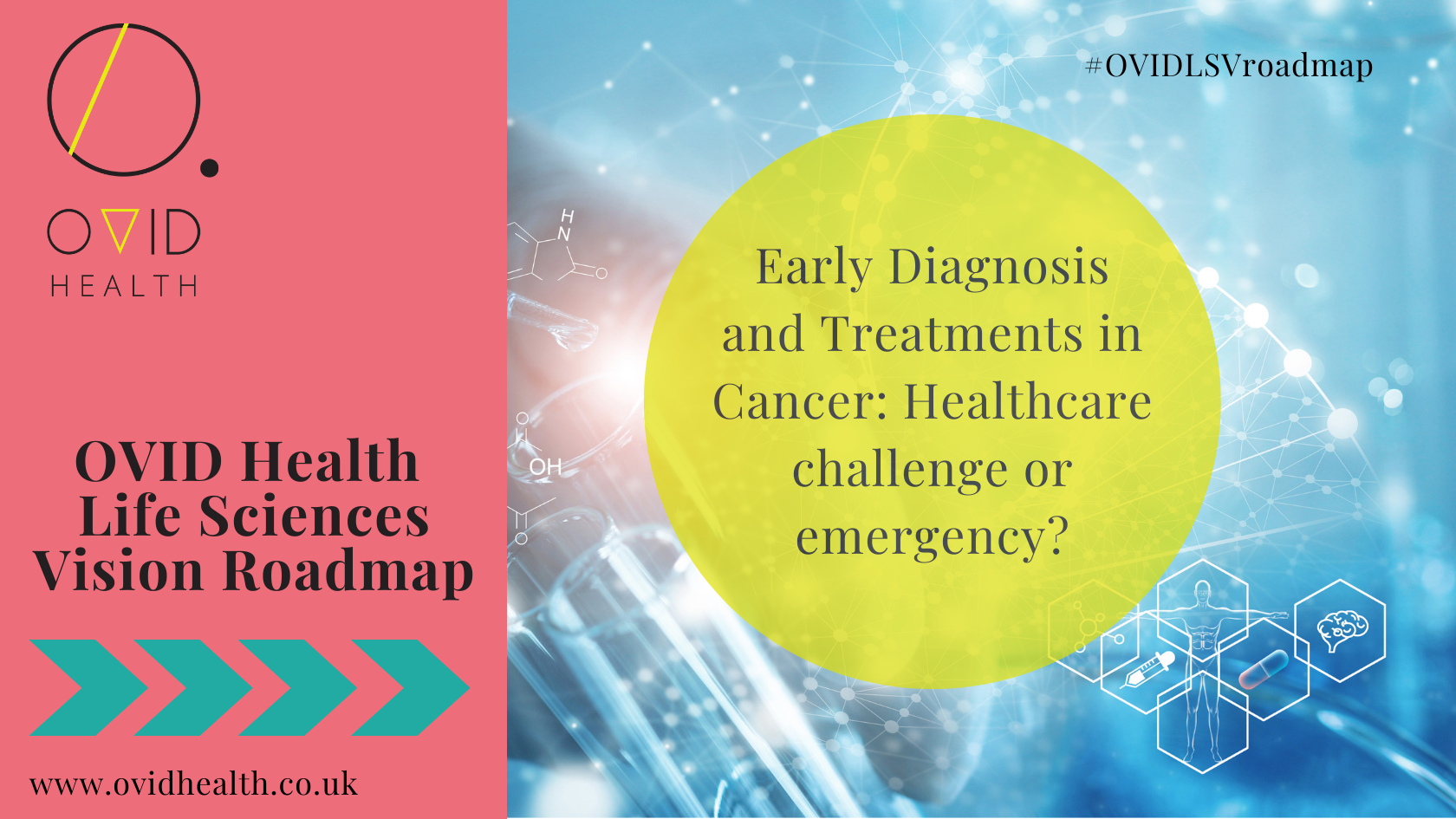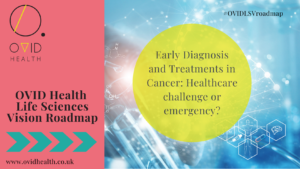
14 Jul Early Diagnosis and Treatments in Cancer: Healthcare challenge or emergency?

July 14th was the timetabled release date for the Life Sciences Vision Roadmap – the delivery plan was due to set out funded activity for this spending review cycle to deliver on the Life Sciences Vision’s “great healthcare challenges”. Political circumstances have shelved the policy document but not the challenges it seeks to address. OVID Health Associate Director, Cameron Miller, shares his analysis of what the Roadmap needed to contain on cancer.
Behind the curve
The Life Sciences Vision published last July, highlights that cancer has not only been the highest single area of funding for the NIHR, but also a focus for many policy initiatives over the years. Despite this, the UK still finds itself behind other high income countries in regards to diagnosis and survival, with one study showing the UK having the lowest survival rates for five of the seven cancers that were analysed. The Roadmap was meant to set out how the legacy of the pandemic – including a fall in diagnostic rates and possible impact on survival – will be reversed.
The ambition is for the UK to be a test bed for oncology innovation, where companies can have access to finance and skills to enable them to grow and flourish. But would the Roadmap have unblocked or ignored why innovative companies may not want to operate in the UK or use the UK as the innovation hub unless new treatments or tools are embedded within the system?
On the road to nowhere
Fundamentally, innovating companies in this space need to be sure that the NHS will be able to access their diagnostic tools or treatments. This means that they need to be confident in the access environment. The NICE Methods Review last year was a disappointment for new oncology medicines. It did not give a clear sense of how it has improved the access environment and arguably made it worse, with the Innovative Medicines Fund capping the amount allowed to be spent on managed access agreements, and multi-indication pricing not addressed in this or any other serious policy document over the last few years.
The Life Sciences Vision highlights ILAP as an important enabler bringing a manufacturer or developer into the regulatory and market access conversation early, which is something to be celebrated. However, the systems currently in place are leaning towards being discouraging for companies to even consider launching in the UK, let alone as a first to market for innovation.
Once a new treatment is approved, how it is rolled out is fundamental to its success, especially for innovative products which may require more training and better infrastructure.
Reasons to be cheerful?
Of course cancer research and early launch of medicines and MedTech in the UK do have significant benefits. Our data resource aims to be more joined up (ish) than other nations, and so allows for a richness of data that you may not be able to get in other countries without significant investment. This would be one of the most important parts of the Roadmap.
The UK also has a world leading reputation in genomics, where the future of diagnostics arguably lies. Although this may be several years away, we are seeing investment in this, which will hopefully bear fruit in the future.
But to be successful, the Life Sciences Vision cancer challenge cannot operate in a vacuum, separate from the same Government’s 10 year Cancer Plan and NHS England’s Long Term Plan. CAR-T is a great example of this – the NHS was the first health system in Europe to reimburse this cell therapy but it isn’t even mentioned in the new 10-Year Cancer Plan. What the Roadmap or next Secretary of State or Minister needs to set out now is how the system needs to change, to ensure that it is joined up.
To find out more about OVID’s take on the Life Sciences Vision healthcare challenges and how to deliver them, check out our series here.